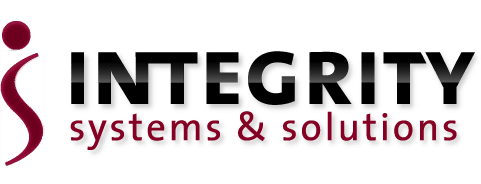
By: Michael Vincelette on May 6th, 2025
HIPAA Compliance Guide for Dental Offices
Protecting patient information isn’t optional — it’s the law. This outline-style guide is designed to help dental practices understand and implement the core requirements of HIPAA, providing a structured overview of the rules, responsibilities and safeguards every dental team must follow to remain compliant.
Whether you're a solo practitioner, office manager or compliance officer, this guide will help you build a strong foundation for HIPAA compliance in your dental office.
What Is HIPAA?
The Health Insurance Portability and Accountability Act (HIPAA) is a federal law that mandates the protection of sensitive patient health information (PHI). In dental practices, HIPAA governs how information is collected, stored, used, and shared.
Key HIPAA Terms Defined
- PHI: Protected Health Information
- ePHI: Electronic PHI
- Covered Entity: Healthcare providers, including dentists, who transmit health data electronically
Why Following HIPAA Is Non-Negotiable
- Legal compliance: Avoid fines and regulatory action.
- Patient trust: Maintain confidence in your practice.
- Ethical responsibility: Do the right thing with sensitive data.
- Data breaches: Reduce risk and maintain business continuity.
Key HIPAA Rules That Apply to Dental Offices
1. The Privacy Rule
Protects patients’ rights to control how their PHI is used and shared.
Dental Office Requirements:
- Display your Notice of Privacy Practices.
- Obtain signed acknowledgments from patients.
- Limit disclosures to the minimum necessary.
- Honor patient requests for access, amendment, and restriction.
2. The Security Rule
Mandates safeguards to protect ePHI from unauthorized access.
Three Categories of Safeguards:
- Administrative: Risk assessments, employee training, security management
- Physical: Locked storage, facility access control, workstation security
- Technical: Passwords, encryption, audit logs, secure access controls
3. The Breach Notification Rule
Requires covered entities to report data breaches involving unsecured PHI.
Key Actions:
- Notify affected patients within 60 days.
- ).
- For large breaches, report to
- Document breach investigations and mitigation steps.
4. The Enforcement Rule
Outlines penalties for non-compliance, which can include:
- Civil fines ($100 to $50,000 per violation)
- Criminal charges in severe cases
Core Elements of Your Dental HIPAA Manual
Your manual should include the following components, organized for easy reference:
1. Privacy Rule Policies
a. Patient rights
b. Disclosure limitations
c. Consent and authorization forms
d. Use of PHI in treatment, payment and operations
2. Security Rule Procedures
a. Risk analysis and mitigation plan
b. Password policies
c. Device and media control
d. Data encryption methods
3. Breach Notification Protocols
a. Incident response plan
b. Breach assessment steps
c. Required documentation and reporting
4. Minimum Necessary Standard
a. Define roles and limit access accordingly.
b. Staff should access only the PHI needed for their job.
5. Patient Rights
a. Right to access and request changes to records
b. Right to an accounting of disclosures
c. Right to confidential communications
6. Required Logs and Documentation
a. Staff training logs
b. Risk assessment results
c. Breach incident reports
d. System access logs
Business Associate Agreements (BAAs)
A Business Associate Agreement is required for any vendor who handles PHI on your behalf — this includes IT providers, billing services and cloud storage companies.
Each BAA should include:
- PHI protection obligations
- Reporting requirements in case of a breach
- Termination clauses for non-compliance
HIPAA Training Requirements
All staff members — clinical, administrative, and temporary — must receive HIPAA training.
Best Practices:
- Conduct annual training.
- Train new hires within days of onboarding.
- Maintain training logs and sign-offs.
- Include training on specific dental workflows (e.g. front-desk conversations, appointment reminders).
Maintaining and Updating the Manual
Assign a HIPAA compliance officer (often the practice manager) to:
- Review and update the manual annually.
- Revise policies when workflows or software change.
- Conduct regular risk assessments.
- Stay current with HIPAA laws and local regulations.
- Train staff on any updates.
HIPAA FAQs for Dental Offices
Q: Does my solo dental office need a full HIPAA manual?
A: Yes — even solo providers must comply with HIPAA and can be audited.
Q: Do I need separate manuals for each location?
A: Use one master manual, but add location-specific addendums if workflows or vendors differ.
Q: Can I use a generic HIPAA manual?
A: You can — but it must be customized to reflect your actual policies and systems.
Q: How often should I train my dental staff on HIPAA?
A: At least once a year, and/or whenever you update your HIPAA manual, change systems, or have new hires.
Q: What if I fail a HIPAA audit?
A: You may face fines, investigations, and be responsible for public breach notifications. A strong manual and documentation help reduce risk.
Protecting Patients Starts With a Plan
HIPAA compliance isn't a one-time task — it’s a continuous process that affects every aspect of how you run your dental practice. A clear, up-to-date HIPAA manual can help you and your staff protect patient information, stay ahead of audits and build lasting trust with those you serve.
If you're ready to take the next step toward stress-free compliance, Integrity Systems & Solutions will help you protect your patient data with IntegrityComply. Request a free consultation today to learn how we can act as your IT department and compliance partner.


